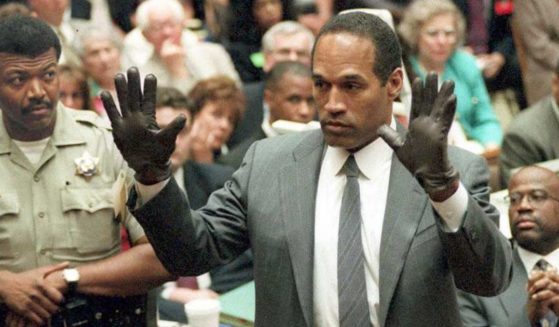Wisconsin court: Judge's Facebook friendship could show bias
MADISON, Wis. (AP) — A Wisconsin judge’s decision to become Facebook friends with a woman whose child custody case he was hearing created at least the appearance of bias, a state appeals court ruled Wednesday in ordering the case to be re-heard by another judge.
The case, which is the first of its kind in the state, contemplates whether judges’ use of social media can compromise them. In its ruling, the 3rd District Court of Appeals didn’t lay out any bright-line rules for judges, but it warned them to use caution when engaging with people online to avoid the appearance of impropriety.
“We caution that judges should recognize that online interactions, like real-world interactions, must be treated with a degree of care,” appellate Judge Mark Seidl wrote in the ruling.
According to court documents, Angela Carroll filed a motion in Barron County in 2016 to adjust a custody arrangement she had reached with her son’s father, Timothy Miller. She demanded sole legal custody, primary placement of the boy and an order forcing Miller to pay child support. She argued Miller had abused her, an accusation Miller denied.
The case landed with Judge Michael Bitney. Three days after Carroll and Miller submitted their final written arguments in 2017, Bitney accepted a Facebook friend request from Carroll.
She proceeded to like 18 of the judge’s posts and commented on two of them. None of the posts were directly related to the pending custody case. Bitney didn’t like or comment on any of Carroll’s posts and didn’t reply to her comments. He didn’t deny reading them, however.
Carroll also shared one third-party photograph related to domestic violence. Nothing suggests the judge ever saw it, but the post could have appeared on his newsfeed, according to the documents.
A month later Bitney ruled that Miller had abused Carroll, which he said amounted to a substantial change in the litigants’ circumstances. He gave Carroll sole custody and physical placement of their son and ordered a review of Miller’s child support obligations.
The boy’s guardian ad litem, who is appointed by the court to advocate for a child’s best interests, later discovered that Bitney had friended Carroll and informed Miller, who asked Bitney to reconsider, arguing that the relationship presents an appearance of bias. Bitney denied any bias during a hearing.
Miller then went to the 3rd District Court of Appeals. The three-judge panel found in his favor, saying Bitney’s actions created a substantial risk of bias resulting in the appearance of partiality. The lack of disclosure heightens those concerns, the court said.
“A reasonable person could believe Carroll sent the ‘friend’ request in an attempt to influence Judge Bitney’s decision. And, because the other party had no opportunity to respond to this attempt or to review how Carroll and Judge Bitney interacted through their Facebook friendship, a reasonable person could believe that Carroll did exert, either directly or indirectly, some influence,” Seidl wrote.
The court cited a 2016 ruling by the New Mexico Supreme Court, which found that judicial use of social media, alone, generally doesn’t require judicial disqualification but judges must avoid any conduct that would undermine their impartiality. That ruling was linked to a homicide case in which the defendant pointed out that his trial judge discussed his case on the judge’s campaign Facebook page.
The Wisconsin appeals court ordered the custody case to proceed before a different judge.
Bitney didn’t return a phone message Wednesday. Carroll’s attorney, Brandon Schwartz, called the ruling disappointing in an email to The Associated Press.
“Ms. Carroll maintains that the benign acts of a remote Facebook connection and the absolute absence of any suggestion of actual bias … should not be the basis to put her and her child at further risk and further hardship,” Schwartz wrote.
Neither Bitney nor Carroll’s attorney immediately responded to phone messages Wednesday seeking comment.
___
Follow Todd Richmond on Twitter at https://twitter.com/trichmond1
The Western Journal has not reviewed this Associated Press story prior to publication. Therefore, it may contain editorial bias or may in some other way not meet our normal editorial standards. It is provided to our readers as a service from The Western Journal.
Truth and Accuracy
We are committed to truth and accuracy in all of our journalism. Read our editorial standards.












